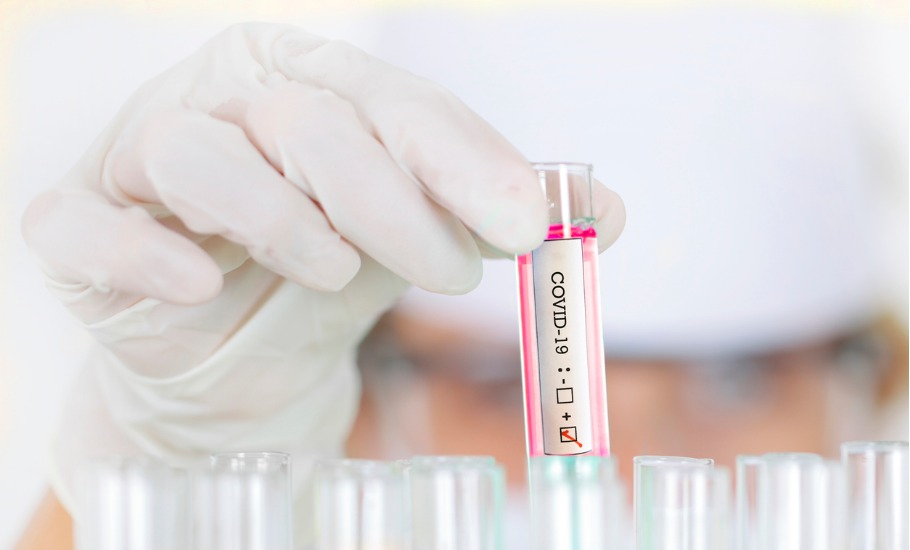
Explained: All you need to know about COVID-19 tests, hotspots
Words such as symptoms, testing, hotsports, and increasing number of cases and deaths related to the coronavirus outbreak, have become a major part of our daily language and doctors try to explain for what these testing and containment terminologies mean.

Words such as symptoms, testing, hotspots, and increase in number of cases and deaths related to the coronavirus outbreak, has become part of our daily discourse. However, not many of us know the correct definition of much of these.
As the world reels under the pandemic, doctors make an effort to explain what these testing and containment terminologies mean.
Following the COVID-19 infection spreading its tentacles across the country, to diagnose symptomatic people, currently in India, two kinds of tests — RT-PCR test and rapid antibody test — as per global health norms.
Testing
A reverse transcription polymerase chain reaction (RT-PCR) test is a laboratory technique combining reverse transcription of RNA into DNA that detects the virus while the antibody tests, which use blood, detect the bodys response to the virus, experts said.
“In RT-PCR, it is tested if the virus is present or not. A sample is taken from the respiratory tract of a person, throat swab or a sample from the naseopharyngal region and then tested. The results take about 12-24 hours,” noted Delhi-based lung surgeon Arvind Kumar.
Related news: Explained: What is antibody test for COVID-19 and why is it important?
Kumar, who works at Sir Ganga Ram Hospital in New Delhi, said, “RT-PCR tests take time and are a costly affair because of its elaborate kit. On the other hand, the rapid antibodies test are less expensive and the results can come in 20-30 minutes. It essentially tests if the antibodies in response the coronavirus infection has been generated or not.”
These tests are generally used in hotspots where the infection is found concentrated in a given area.
Hotspots
A hotspot is a zone from where a large number of COVID-19 cases are reported.
In Delhi, till Monday night the number of hotspots stood at 47, which have been made containment zones and sealed.
“In rapid antibodies test, the result will be positive only if the antibodies have been generated. So, even if a person is infected but the antibodies are not generated, the result will come negative,” Kumar said.
In many cases, it has happened in the past that a person tested negative earlier but after a few days when he or she reached another country, the test came out positive there. This same person would have come out positive had the RT-PCR test been conducted, but the issue is feasibility of its use.
In government labs, the tests are free but at private laboratories, which use RT-PCR test the cost is ₹4,500.
Private testing
The Supreme Court on Monday (April 13) modified its April 8 order that asked private labs to conduct free COVID-19 tests and said the benefit will be available only to “economically weaker sections” who are covered under a government scheme such as Ayushmaan Bharat.
The apex court said it never intended to make testing free for those who can afford to pay.
It had on April 8 directed that private labs, which were allowed to charge ₹4,500 for it, would not charge for the tests observing that they need to be philanthropic in the hour of national crisis.
Related news: Where are India’s COVID-19 hotspots and what is being done there
A spokesperson of the Thyrocare labs, one of the laboratories authorised by the government to do testing, said, testing has to be done judiciously as there are less number of kits in India.
“A doctors recommendation is required before we can do testing. Well-known video blogger Mumbiker Nikhil had recently returned from the UK and he got his testing done and even made a video on it to raise awareness as people coming from abroad should consult doctors, especially if they are showing symptoms,” he said.
Containment zones
Houses, containment zones are being surveyed by medical teams and people being made aware about the signs and symptoms of COVID-19, methods of prevention, social
distancing measures, importance of hand washing, Delhi Health Department authorities said.
Sample collection for high-risk areas in identified containment zones for people who had come in contact with persons testing positive is being carried out, they said, adding that 310 samples have been collected till Monday.
Doctors at Delhi government hospitals said from naseopharyngal and oral samples, if either of that comes positive, that person is considered COVID-19-affected.
Related news: India’s malaria is ‘helping’ nations combat COVID-19: Know how
How well these tests work depends on several factors, including the time from the onset of illness, the concentration of virus in the specimen, the quality of the specimen collected from a person and how it is processed, and the precise formulation of the reagents in the test kits, experts said.
Additionally, false positive results — that is, a test showing that a person is infected when they are not — could occur if the antibodies on the test strip also recognise antigens of viruses other than COVID-19, such as from human coronaviruses that causes the common cold, they said.
The death toll due to coronavirus in the country rose to 339 while the number of cases soared to 10,363 on Tuesday, said the Union Health Ministry.
(With inputs from agencies)

